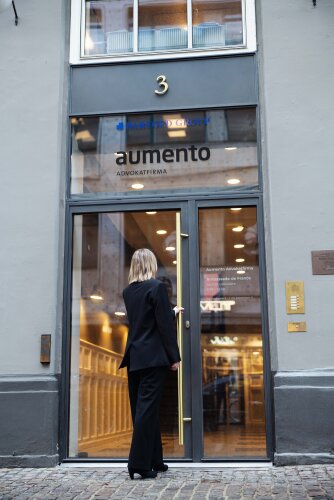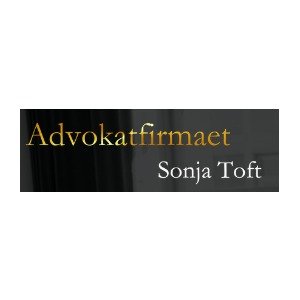Best Inheritance Law Lawyers in Copenhagen
Share your needs with us, get contacted by law firms.
Free. Takes 2 min.
List of the best lawyers in Copenhagen, Denmark
1. About Inheritance Law in Copenhagen, Denmark
Inheritance law in Denmark is a civil law area that governs how a deceased person’s assets are distributed. The Danish Inheritance Act, known as Arveloven, sets the framework for both testate (with a will) and intestate (without a will) succession. In Copenhagen, as in the rest of Denmark, estate administration follows the same rules and is handled within the Danish court system and by appointed executors or administrators.
Key concepts include the distinction between a will and intestacy, and the protection of close family members through tvangsarv, or forced inheritance rights. The act also defines the order of heirs, the rights of a surviving spouse, and how a deceased person’s debts are settled before any distribution. When assets extend beyond Denmark, cross-border rules may apply under EU law for determining applicable law and jurisdiction.
For practical matters, many families in Copenhagen rely on experienced advokats (lawyers) to interpret the Arveloven and to guide the probate process. The legal framework also interacts with tax rules on inheritance and gifts, which are administered by the Danish Tax Authority. Understanding both the civil and tax components helps ensure a compliant and timely settlement of the estate.
The Danish Inheritance Act (Arveloven) governs distribution of estates, including mandatory portions for descendants and spousal rights. Source: Retsinformation
Cross-border succession matters may be guided by the European Union Regulation on jurisdiction and recognition of decisions in matters of succession (EU Regulation 650/2012). Denmark implements these rules for cross-border cases, which can affect probate and choice of law when a deceased person held assets in multiple countries. See official EU guidance for details.
EU Succession Regulation applies to cross-border successions in Denmark, establishing jurisdiction and applicable law for multi-country estates. Source: European Commission - EU Succession Regulation
2. Why You May Need a Lawyer
In Copenhagen you may need legal help in several concrete situations that arise under Inheritance Law. The following scenarios reflect common, real-world issues faced by families in the area.
- A deceased parent left a will that seems to favor one grandchild over another; you want to verify validity and ensure the will complies with tvangsarv rules.
- The estate includes a Danish home and a vacation property abroad; you need guidance on cross-border ownership and which law applies to the distribution.
- A surviving spouse seeks to enforce their rights under the will or under tvangsarv, while children claim a larger share; you need a clear, enforceable settlement plan.
- There is a dispute about what debts the estate owes and how assets should be liquidated to pay those debts before distribution.
- A beneficiary suspects the will was drafted under undue influence or without proper testamentary capacity; you may need to challenge the will or defend it in court.
- The estate includes digital assets and online accounts that require specialized inventory and access provisions as part of the skifte process.
Engaging a local advokat with experience in Arveloven and Skifteloven can help you navigate probate timelines, court filings, and potential disputes. A Copenhagen-based attorney can coordinate with local authorities, notaries, and tax officials to minimize delays and ensure compliance with Danish procedures.
3. Local Laws Overview
The Danish framework for inheritance encompasses several key statutes and regulations. Below are the main laws that govern the process in Copenhagen, with notes on their scope and typical areas of impact.
Arveloven (the Inheritance Act) governs the rules for wills, intestacy, and the rights of spouses and children, including the concept of forced inheritance rights (tvangsarv). It also sets out how a will can be valid and how distributions are made when there is no will. The current text is maintained through ongoing amendments and is accessible through official channels.
Skifteloven (the Estate Settlement Act) covers the practical process of settling a deceased's estate. It addresses appointment of executors or administrators, inventorying assets and debts, and distributing the estate under the guidance of Arveloven. This act provides the procedural framework that governs probate in Copenhagen and nationwide.
Afgiftsloven (the Inheritance and Gift Tax framework) regulates boafgift and gift taxes on inheritances and gifts. Tax implications depend on the relationship of the beneficiary to the deceased and the value of the assets involved. Tax authority guidance is essential to understand exemptions, reliefs, and reporting requirements.
Recent trends in practice include expanding attention to digital assets within estates and addressing cross-border assets through EU Regulation 650/2012. To confirm current texts and any recent changes, consult official sources such as Retsinformation, Skat, and Domstol portals.
The Arveloven text is updated periodically; consult Retsinformation for the latest version and enacted amendments. Source: Retsinformation
Boafgift rules and tax treatment are published by Skat; beneficiaries should check the official guidance for exemptions and rates. Source: Skat
4. Frequently Asked Questions
What is the Danish Inheritance Act and what does it cover?
The Inheritance Act, or Arveloven, sets the rules for wills, intestacy, and rights of spouses and children. It defines how an estate is distributed and how the mandatory portion operates.
How do I know if I need a will or if I should rely on intestacy?
If you want to control asset distribution beyond the default rules, a will is advisable. If there is no will, the statutory order of heirs applies under Arveloven.
When should I start probate after a death in Copenhagen?
Probate typically starts soon after death and death certificates, will documents, and asset lists are gathered. Initiating within a few weeks helps avoid delays.
Where do I file probate documents in Copenhagen?
Probate filings are handled through the Danish court system, with the local district court processing the estate. Your lawyer can file on your behalf and coordinate with the court.
Why might a will be challenged or invalidated?
Challenges often involve questions about testamentary capacity, undue influence, fraud, or improper execution of the will under Arveloven.
Can I handle inheritance matters without a Danish lawyer?
Simple estates may be manageable, but complex issues such as cross-border assets, disputes, or tax questions usually require a Danish advokat to ensure compliance and avoid errors.
Should I consider cross-border issues if the deceased owned assets abroad?
Yes. Cross-border assets bring EU Regulation 650/2012 into play, affecting jurisdiction and applicable law for the estate.
Do I need to pay inheritance tax on Danish assets?
Boafgift applies to many transfers on death. The amount depends on the beneficiary's relation to the deceased and the value of the estate, as determined by Skat.
Is there a difference between a will and a codicil in Denmark?
A codicil is a supplementary amendment to an existing will. Both must follow the formal requirements for a valid testament in Denmark.
What documents should I collect for an initial consultation?
Collect death certificate, will (if any), a list of assets and debts, property titles, bank statements, and details of beneficiaries and heirs.
How long does the probate process typically take in a straightforward case?
A simple Danish estate may resolve in 6-12 months, while complex cases or those with disputes can take longer depending on court calendars and asset complexity.
5. Additional Resources
- Borger.dk - Official government portal with information on inheritance, wills, and the probate process for Danish residents. Borger.dk
- Skat.dk - Danish Tax Authority site with guidance on boafgift, exemptions, and reporting requirements for inheritances and gifts. Skat
- Domstol.dk - Portal for the Danish court system, including probate procedures and court contacts. Domstol
- Retsinformation.dk - Official database of Danish legislation, including the Arveloven and Skifteloven. Retsinformation
- Advokatsamfundet - Danish Bar and Law Society; use their lawyer search to find qualified inheritance-law specialists in Copenhagen. Advokatsamfundet
6. Next Steps
- Collect essential documents and a list of potential heirs within 1-2 weeks of learning about the death.
- Identify whether a will exists and whether a Danish advokat should be engaged for guidance within 1-3 weeks.
- Arrange an initial consultation with a Copenhagen inheritance-law solicitor to review the estate and outline the plan within 2-4 weeks.
- Obtain a preliminary inventory of assets, debts, and potential taxes, and have the lawyer prepare a formal engagement letter with fees within 2-6 weeks.
- File the probate application or respond to court requests, with ongoing communication from your lawyer to the appropriate Danish court within 1-3 months.
- Address tax obligations with Skat and finalize the distribution plan under Arveloven and Skifteloven within 6-12 months.
- Review the final settlement with your lawyer and close the estate, updating wills or estate plans as needed for future planning.
Lawzana helps you find the best lawyers and law firms in Copenhagen through a curated and pre-screened list of qualified legal professionals. Our platform offers rankings and detailed profiles of attorneys and law firms, allowing you to compare based on practice areas, including Inheritance Law, experience, and client feedback.
Each profile includes a description of the firm's areas of practice, client reviews, team members and partners, year of establishment, spoken languages, office locations, contact information, social media presence, and any published articles or resources. Most firms on our platform speak English and are experienced in both local and international legal matters.
Get a quote from top-rated law firms in Copenhagen, Denmark — quickly, securely, and without unnecessary hassle.
Disclaimer:
The information provided on this page is for general informational purposes only and does not constitute legal advice. While we strive to ensure the accuracy and relevance of the content, legal information may change over time, and interpretations of the law can vary. You should always consult with a qualified legal professional for advice specific to your situation.
We disclaim all liability for actions taken or not taken based on the content of this page. If you believe any information is incorrect or outdated, please contact us, and we will review and update it where appropriate.
















